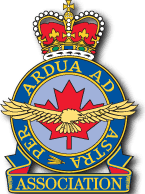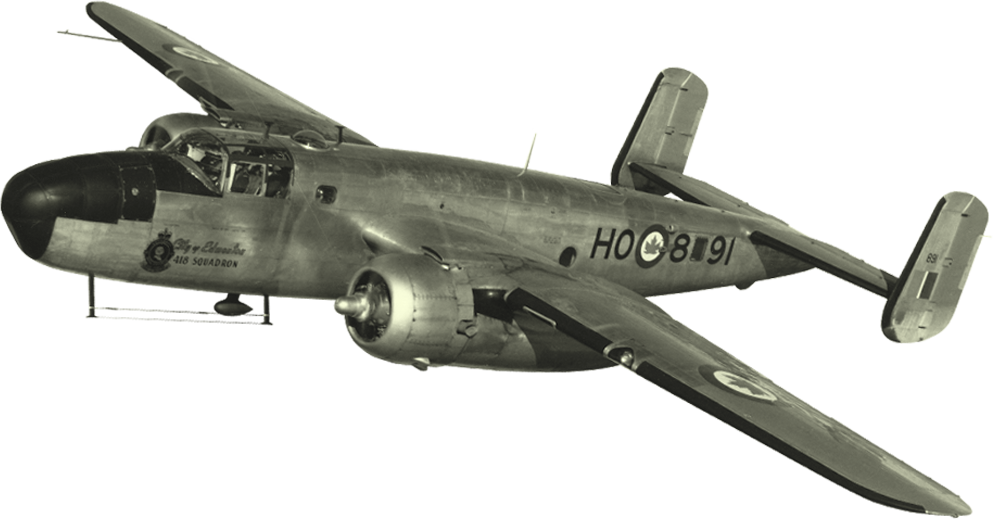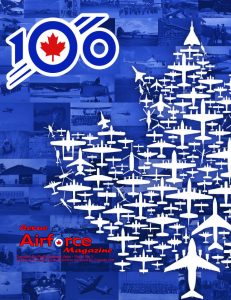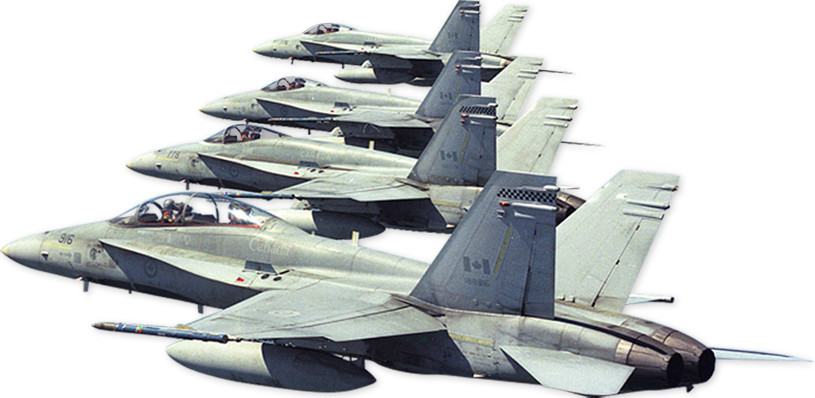AVENT,
Gordon Halse
Flying Officer,
No.40 Squadron,
J6377
Distinguished Flying Cross
RCAF Personnel Awards 1939-1949
Description (click to view)
AVENT, F/O Gordon Halse (J6377) - Distinguished Flying Cross - No.40 Squadron - Award effective 20 July 1943 as per London Gazette dated 10 August 1943 and AFRO 1849/43 dated 10 September 1943. Born in Winnipeg, 11 December 1915 (see obituary notice for date of birth); educated there (St.John's College and University of Manitoba); enlisted there 17 October 1940. To No.1 ITS, 27 January 1941; promoted LAC, 4 March 1941 and posted that date to No.4 EFTS; to No.6 SFTS, 4 May 1941; graduated and commissioned on 27 July 1941. To Embarkation Depot, 28 July 1941. To RAF overseas, 19 August 1941. Promoted Flying Officer, 28 July 1942. Promoted Flight Lieutenant, 28 July 1943. Promoted Squadron Leader, 16 September 1943. Repatriated 12 August 1944. To No.164 (Transport) Squadron, 30 November 1944. Award presented 2 December 1946. Remained in postwar RCAF (service number 19996), attaining the rank of Wing Commander (1 January 1952). Served in Moncton, London (England), Germany, Trenton, Winnipeg and Ottawa. Following RCAF service he was employed by Parks Canada until 1980. Died in Ottawa, 11 November 2001. Canadian Forces Photo Centre has many photographs of which the following is a selection: PL-18888 (Sergeant Arthur Howes, Sergeant Norman Reid, Sergeant Edward Beetz, S/L Gordon Avent, Sergeant Tom Bradshaw at Roman aquaduct, 10 December 1943); PL-18955 to 18957 (S/L G. Avent, S/L James Bodman, flight commanders in an RAF Wellington squadron in Italy); PL-25521L (returned to Canada); PL-38301 (investiture); PL-38350 (investiture); PL-57673 (portrait, June 1953); PL-104015 is a portrait about 1952; PL-131740 (portrait, 1964). // This officer is a skilful, courageous and determined pilot. One night in June 1943 he undertook a flight of special importance. Visibility was only fair but Flying Officer Avent skilfully located his target and, in spite of heavy and accurate anti-aircraft fire, completed his task successfully. Flying Officer Avent has completed very many sorties and throughout, his efforts have been characterized by great determination. // RCAF Press Release No.5008 dated 18 May 1944, transcribed by Huguette Mondor Oates, reads: // ITALY: -- Like a page from Beau Geste read the adventures of three officers of Royal Canadian Air Force District Headquarters here, who have just returned to Italy after a forced-landing in Africa, long days of wandering in the Moroccan desert. // Bedouins and Moorish troops, travel by camel, visits to isolated forts and native villages, with glimpses of tribal ceremonies and sample of the ageless tradition of hospitality of the nomad, provided excitement and variety and compensated for the privation and discomfort in which the Canadians began their trek. // The three officers – all of whom had been reported “missing officially and were feared to be casualties – were W/C George Ault of Ottawa, Ontario, Commanding officer of RCAF District H.Q. in Italy; S/L Gordon Avent, DFC., of Winnipeg, veteran tour-expired bomber-pilot who had been acting as a Liaison Officer at D.H.Q.; and S/L Marcel Brosseau of Montreal, P.Q., senior Accounts Liaison Officer. With them throughout their adventures were four South Africans who formed the crew of their aircraft, an Anson. // The party was in the course of an extensive tour of the huge slice of the African Continent which comes under their jurisdiction along with Italy, visiting British air bases and units and contacting RCAF personnel attached to the R.A.F. Approximately six weeks ago, they took off from Marrakesh, bound for Tindouf in French Morocco. Foul weather quickly developed, with varying winds and a swirling sand-storm. Visibility was virtually nil, and the pilot had to come down to fifty feet, skimming the ground and making lightning manoeuvres to follow the rolling contour of the terrain. Accurate navigation was impossible, wireless contacts and “fixes” were of little help, and the aircraft was soon hopelessly lost. Petrol was dwindling rapidly, and a hazardous forced-landing was decided upon. // Luck was with the party for, although the aircraft touched down in a rocky wilderness studded with huge boulders, the pilot succeeded in threading a path through them without damage. The party climbed out, held a brief council, and took stock of their predicament and possessions. Amongst the seven men, they found they had only the clothes they wore or carried; one automatic pistol belonging to the wing commander; one ‘tommy’ gun of which the “tommy” part was broken so that the weapon would fire only one shot; one fire-axe from the aircraft; one tin of bully-beef and some tins of water. W/C Ault and Squadron Leader Brosseau volunteered to set out in search of help or food and eventually found a small Arab lad. // “He was a cute little tyke”, the wing commander related later, “but his vocabulary was certainly limited. It consisted of one word – or rather one sound – a clucking noise like a cross between the way you urge on a horse, and a person sucking air through his teeth. It could have meant hello, yes, no, I don’t understand, or I’ll go get my big brother --- any or all of those. Anyhow, in the end, he did vanish and reappear with a bigger lad who looked like a brother. // “After that, things moved faster. The brother went off and came back with practically an entire village, complete with camels. They all seemed quite impressed by our arrival, but made no effort to provide food --- and by this time, we were getting mighty hungry.” The Canadians and South Africans spent a most uncomfortable and cold night huddled together in their Anson, with a wary eye on the hovering Arabs. In the morning, the Head Man of the nearest village arrived. But he, too, seemed deficient in vocabulary. To all overtures and requests, he made the same reply: “Hock Mohammed!”. This rather baffled his interviewers. // By the aid of some haphazard map-reading and much vague palavering with the Arabs, the officers decided that the nearest Allied settlement was Tindouf, for which they had been bound when their troubles began. So they tried to convey to the Arabs that camel transport to Tindouf was desired. These negotiations, however, soon bogged down. Later, events proved that this was most fortunate, as the officers learned that Tindouf was very many miles away, across terrifically rough terrain with no water-holes, so that they might not have survived the trip had they attempted it. // The pangs of hunger having by now become acute, they bought a scrawny ewe from the Arabs for 462 francs, and killed and skinned it. Its flesh was almost un-edible, but it gave them something to chew upon. // As a free contribution to this feast, one of the older Arabs with great ceremony produced an uncured goatskin containing a substance in which he appeared to take great pride. With much formality, he passed it around the Air Force party. “When I put it to my lips and got a look at it, I was very nearly sick on the spot,” related the wing commander. “Lord knows what sort of evil concoction it was to begin with, but add to that the blood and stench of the raw goatskin, and you get the rough idea. We just made slurping noises and pretended to drink to keep the old boy happy.” // For four days, the Canadians and South Africans remained with their aircraft. They busied themselves in the cooler hours by marking out a landing-strip for any chance of passing aircraft, and periodically in the darkness fired Verey lights. After the fourth day, they lost hope of air-rescue, and persuaded the still-hovering Arabs to form a camel-trail and transport them to the nearest settlement. // “As soon as they got us aboard their moth-eaten camels, things began to disappear,” recalled S/L Brosseau. “However, after raising a terrific row with old “Hock Mohammed”, we got a few things back. “Our shiny fire-axe from the aircraft was just too much of a temptation for those lads, however. For days, we had noticed them following its uses with fascinated eyes, and as soon as we hit the trail for their village, the axe vanished. “Twice we saw members of the band drop out of line and cache the axe furtively behind bushes, but each time, we raised such a fuss that they brought it back. Finally I spotted one of the Arabs hiding it under his burnous, and when I again complained to old ‘Hock”, three other Arabs lined up abreast of the first one, and the last I saw they were passing it back and forth under their flowing robes in a sort of walking version of the pea-and shell game. So we gave up.” // At the Arab encampment, they were received and entertained with impressive if somewhat unsanitary hospitality. A sheep was butchered and they were served with chunks of liver in sandwiches of raw shep’s gut. Squatting cross-legged and cramped on the mud floor, the seven guests held their noses while they tried bravely to swallow the malodourous food and drink tea made from murky water. In spite of their famished condition, their stomachs revolted, and all three Canadian resorted to secretly stuffing their meat-portion in their pockets, where they found it later in an advance state of putrefaction. // The following morning, they started out on a trek that was to take them many weary miles from native settlement to native settlement. Never suffering from lack of kindness from the Arabs; but rather suffering from too much hospitality in the form of odiferous and mysterious dishes over which their good manners and their queezy stomachs fought an unceasing battle. But as all stories should this one ends on a happy note as we leave them, after several weeks of adventure, back again with their unit in Italy.








